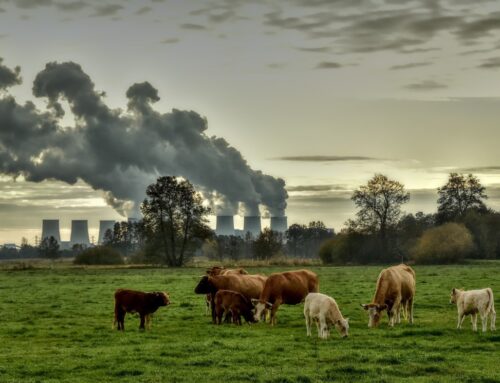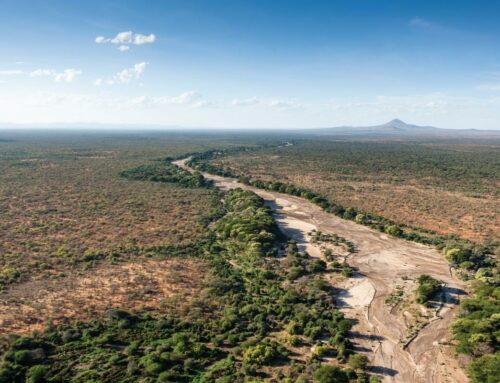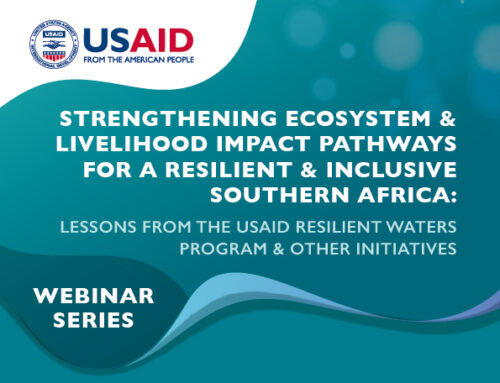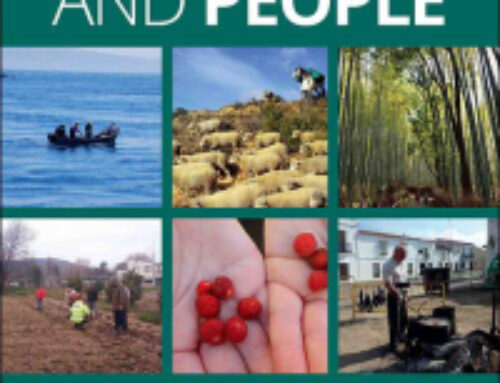Project background
There is growing consensus that significant transformations at local to global scales are required to place humanity and the Earth on a more sustainable and equitable trajectory of development. Achieving the Sustainable Development Goals (SDGs) will require systemic transformations across multiple sectors, including energy systems, technological systems, food systems, economies and cities. Fostering such transformation is likely to be highly complex, as the substantial interdependencies between sectors will lead to tensions and synergies among efforts in different sectors and amongst different SDGs. At the same time, a more sustainable future may be achieved through different pathways that each has a different set of associated costs and benefits, and different people may have substantially different visions of what might constitute a more sustainable and equitable future world.
Food systems will be a central component of a transformation to a more sustainable future. Food systems are deeply intertwined with our current economic and energy systems, as well as being impacted by and having major impacts on biodiversity, water and climate systems. Food systems have deep links to identity and culture, as well as being a major source of livelihoods and employment along the food value chain. However, the current food system is highly unequal, with a substantial proportion of people suffering from undernutrition and malnutrition, while other sectors of society suffer from obesity. There are also deep concerns around issues of ownership, power and inequality in the food system. These issues and concerns are particularly stark in the southern African context.
We critically need approaches that help us identify sustainability initiatives, innovations and practices that hold the potential to trigger different transformative pathways toward sustainability. Many existing initiatives that have transformative potential are currently marginalized because they do not align with dominant values and forces currently shaping the world. Better understanding the obstacles such initiatives face, and how they may be better supported to effect transformative change is a critical area of research and policy. We also need better knowledge on how interactions between different small‐scale initiatives can lead to different plausible transformation pathways. Furthermore, better understanding of the implications of different transformation pathways for the extent to which different sets of sustainability and development targets are achieved, and what types of values may be emphasized or prioritized under different pathways, may be critical to informing policy choices and directing investments towards sustainability transformations.
The Seeds of Good Anthropocenes initiative (https://goodanthropocenes.wordpress.com/) aims to inform and contribute to deep, systemic transformations towards socially and ecologically desirable, just, and sustainable futures. It does this through three main foci: i) identifying and connecting initiatives (“seeds”) that currently exist at the margins of society, but have the potential to contribute to transformative futures, ii) exploring how different seeds might combine to create a variety of possible, radically alternative, positive futures, and iii) exploring potential leverage points and interventions that can enable the emergence and growth of seeds and the evolution of transformative, positive futures (see Bennett et al 20161). The project is being co‐led by Profs Elena Bennett (McGill University, Canada), Garry Peterson (Stockholm Resilience Centre, Sweden) and Reinette (Oonsie) Biggs (Centre for Sustainability Transitions, Stellenbosch University).
Centre for Complex Systems in Transition, Stellenbosch University
The Centre for Sustainability Transitions (CST, http://www.sun.ac.za/cst) builds on a strong history of transdisciplinary research and complexity studies at Stellenbosch University, providing a vibrant hub for solution‐oriented sustainability science that hosts leading scientists and students from diverse disciplinary backgrounds in a state‐of‐the‐art research centre. The primary objective of the CST is to provide transformational knowledge on the dynamics of multi‐scale social‐ecological change, and strategic insights into the new modes of research and governance that can bring about a just transition to a more equitable and sustainable society, in southern Africa and globally. The South African Research Chair (SARChI) in Social‐Ecological Systems and Resilience, held by Prof Reinette (Oonsie) Biggs aims to contribute to better understanding how transformative change can be facilitated at a range of scales, specifically in a southern African context.
Call for applications
We seek motivated individuals, who have a keen interest and passion for linking theory and practice to advance practical sustainability‐related initiatives, an interest and ability to integrate across the social and natural sciences, and who enjoy collaboration and working in teams. Interested individuals should have a strong academic track‐record, preferably with a background in ecology, environmental science or sustainability‐related studies. A variety of potential topics could be pursued, for instance:
- Exploring which SDGs particular food‐related seeds may contribute to, and possible synergies and conflicts in the set of SDGs to which different types of seeds contribute.
- Exploring the values underlying different seeds and how those may shape different potential future scenarios with different types of trade‐offs and tensions.
- Advancing the participatory Manoa mash‐up scenarios method initially piloted in southern Africa (see Pereira et al 2018), to better explore the potential obstacles and opportunities (i.e. pathways of change) for fostering and combining different seeds to generate more sustainable and just futures.
- The use of arts‐based approaches in developing scenarios of sustainable futures.
- The applicant will be supervised by Prof. Reinette (Oonsie) Biggs and Dr Nadia Sitas at the Centre for Sustainability Transitions (http://www.sun.ac.za/cst) at Stellenbosch University.
Funding
The Fellow will be funded by the DSI/NRF SARChI chair held by Prof Biggs and potentially co‐funded by additional projects at the CST, depending on the candidate’s interests. The fellowship will start as soon as possible, and run till end 2022. Funding will be at least R220,000 per year, plus travel expenses.
Requirements
Potential candidates should have completed a PhD degree or equivalent. Experience with participatory methods and scenarios/futures approaches will be an advantage. All candidates should show evidence of strong scholarly performance. Based on the National Research Foundation’s funding guidelines, strong preference will be given to South African nationals and under‐represented groups.
To apply
All interested candidates email the following documents to cstenquiries@sun.ac.za by 15 August 2021 with the subject line “Postdoc application: Transforming food systems”:
- a motivation letter (detailing your previous academic and work experience, and how your experiences and skills speak to the proposed research topic, as well as your specific interests with regard to the proposed project);
- a detailed CV that includes your academic record, previous work experience, any scientific publications on which you have been an author, and the names of at least two academic referees;
- a copy of your ID or passport;
- transcripts of academic qualifications;
- at least one example of recent written work (e.g. a paper, report, thesis chapter).
Enquiries
Enquiries can be directed to cstenquiries@sun.ac.za. Please use the subject line “Postdoc application: Transforming food systems”, as enquiries about multiple adverts are being directed to this address












